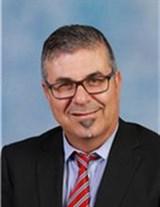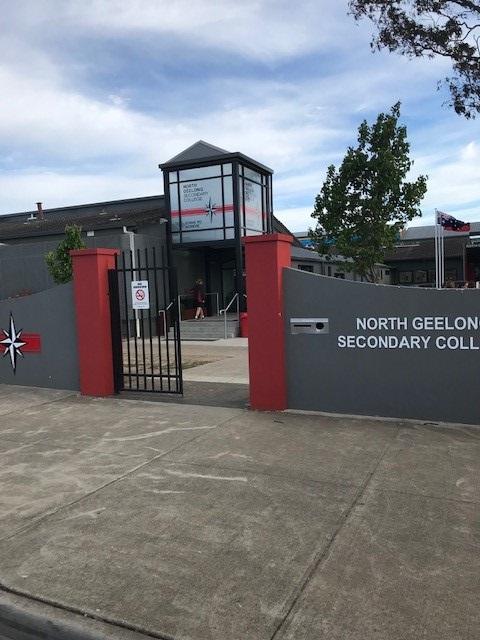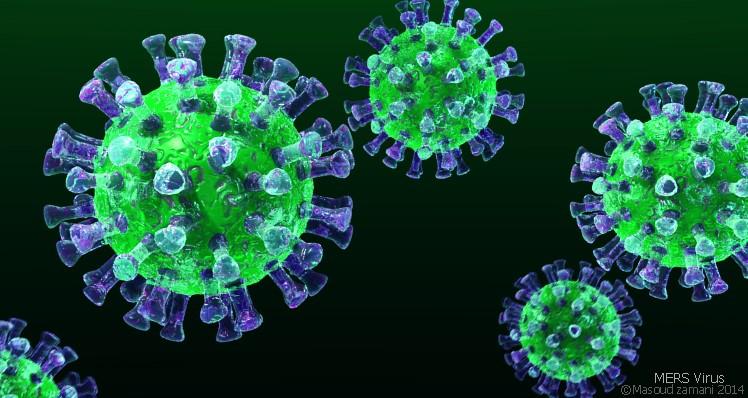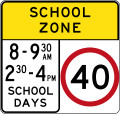PRINCIPAL'S REPORT
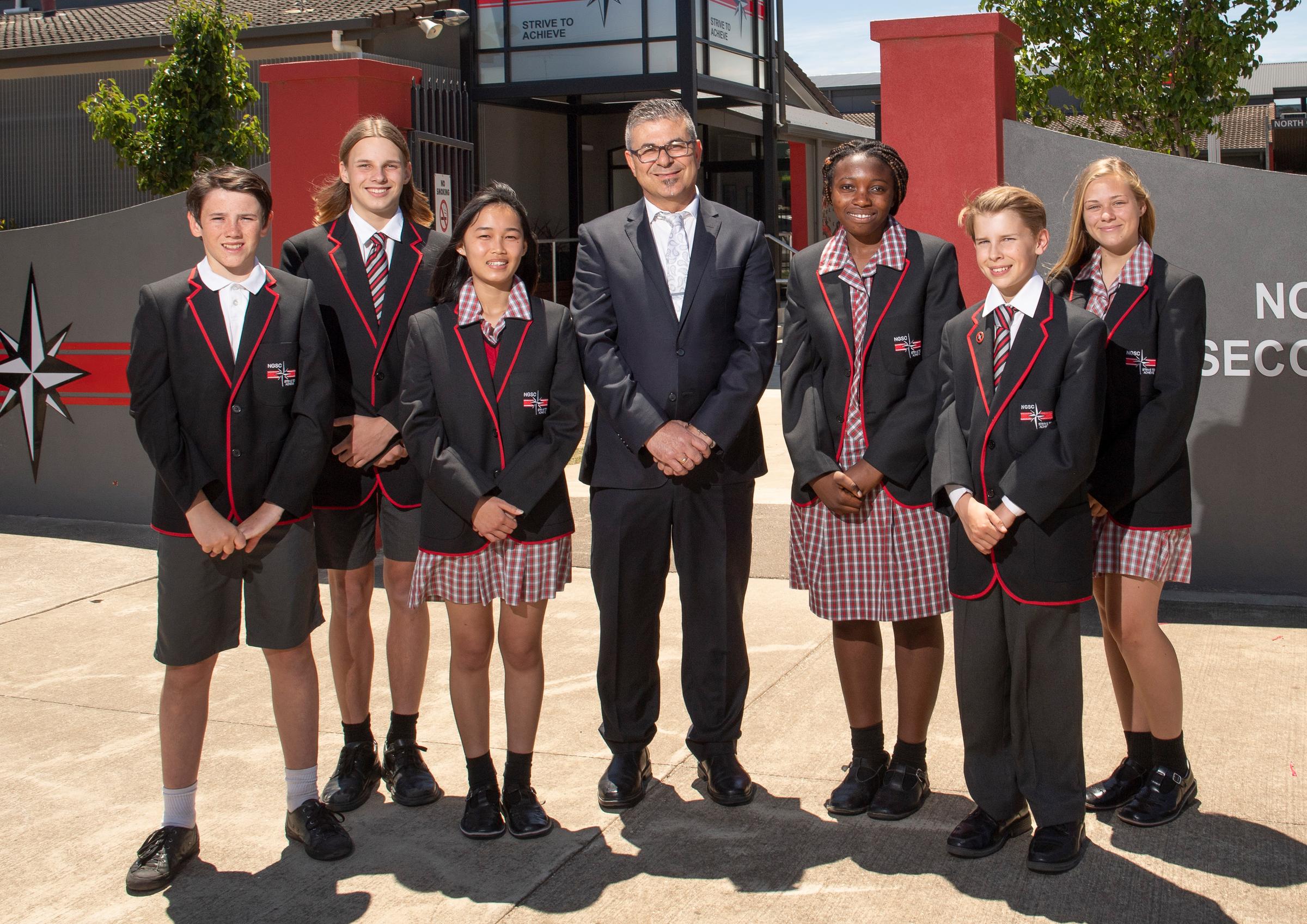
Key Dates
17 FEB Whole School Assembly
26 FEB Student Photo Day
9 MARCH Labour Day Public Holiday
12 MARCH Information Evening/Open Night
16-18 MARCH Year 7 Camp 1
18-20 MARCH Year 7 Camp 2
20 MARCH Whole School Assembly
24 MARCH Parent Teacher Conferences 7-12
26 MARCH Athletics Day - Landy Field
27 MARCH Last Day term 1
(1:30 PM Finish)
13 APRIL Easter Monday
14 APRIL Term 2 Commences
20 APRIL Year 7 Immunisations
Mr Nicholas Adamou
Principal
Welcome back to the 2020 School Year
It is with great pleasure that I welcome everyone back to the 2020 academic year.
I trust that students, parents and staff had a great holiday break and are now ready for yet another successful year.
I extend a special welcome to our new Year 7 students and their families who joined us this year. On Monday, 3 February, at a Welcome to Parents and Students and iPad Distribution Evening, I was pleased to meet and talk to many of our new Year 7 student families.
Also, special welcome to all new Year 8 to 12 students and their families to our school community.
In the last two weeks, it has been great to observe classes settle into their new Home Groups, developing a clear focus on achieving their goals and personal best for this academic year.
To the Year 12 students, as they embark in their final year at the school, I take this opportunity to wish them a year full of success. I cannot promise that it will be a year without any challenges, however, I can guarantee that by applying themselves is the only way to succeed. Last year’s Year 12 cohort has set a high benchmark with outstanding results; however, I believe that this year’s Year 12 students are capable of greater outcomes, pushing the benchmark even higher.
North Geelong SC is a proud school community and places high importance on the way we look and behave in the wider community. Our aim is to continue improving the learning and teaching environment of our students, enabling all kinds of learners to reach their full potential.
Once again, welcome back to what promises to be another great year for our school community. I look forward to meeting and working closely with as many parents/carers as possible during the course of the year.
Wishing all the students, staff and parents a great academic year.
Welcome to New and Returning Staff
I welcome the following staff to our College and wish them a very productive and enjoyable year. We are looking forward to working closely with our new staff to ensure the best possible learning opportunities are provided to our student body.
New and returning staff members
- Mr Thomas Thorn (English/Humanities)
- Ms Carolyn Kent (English/Humanities)
- Mr Tom Grayson (Science/PE)
- Ms Nicolle Brigden (English)
- Mr Michael Kilroy (Science/PE)
- Mr Mark Collins (Maths/Science)
- Mr Cameron Siketa (PE/Soccer/Health)
- Ms Emily de Leeuw (English/Hums)
- Mr David Zuccaro (IT/Maths)
- Mr Max Filippzik (German Assistant)
- Mr James Allen (Mathematics/Science)
- Ms Amal Isac (English/Humanities)
- Mr Paul Schmieder (Science/Maths)
Beginning of Term 1
Unfortunately this year, Term 1 begins with a couple of extra challenges (unprecedented bush fire, extreme weather events across Victoria and Coronavirus). Some bushfires are still burning in parts of the state, posing on-going threats, and, at the same time we enter a recovery phase for those schools and areas affected. Some schools have had flood damage to contend with and there is also the Coronavirus and its implications that will need careful management.
Getting Kids Back to School after the bush fires
The bushfires have presented challenges across the state for people who were trapped in holiday areas, lost homes or businesses or who have been fighting fires. The loss and/or trauma for these individuals is unimaginable and those suffering could be from all parts of the state, not just the affected areas.
NGSC Wellbeing Team has developed a comprehensive response relating to any student who has been through any related bush fires trauma. The following DET links provide further details, resources and supports to help address questions from student families and other community members regarding “The Bush Fires 2020”. For targeted advice, phone Bush Fire Case Support: 1800 560 760.
Extra support is being offered to help those of our students affected by the bush fires in the 15 Local Government Areas of Ararat, Alpine, Ballarat, East Gippsland, Glenelg, Golden Plains, Indigo, Mansfield, Northern Grampians, Pyrenees, Southern Grampians, Towong, Wangaratta, Wellington and Wodonga, to return to school at the beginning of Term 1, 2020.
Families that have been impacted during the current bush fire season can receive assistance for each student family member to cover the cost of uniforms including school shoes, books and stationery and other essential school items.
Support is available to all students whose families have been impacted by:
- Loss of family home - $1200
OR
- Loss of income through volunteering to fight bush fires - $500
OR
- Loss of livelihood/income caused by bush fires - $500.
If you have been impacted, please contact the school to speak to the Wellbeing Team asap.
Please note that families will be asked to confirm their eligibility for this support.
School Council -
Parent Nominations
School councils play a key role in Victorian government schools. Effective councils have a wide range of skills, expertise and knowledge to support good governance and provide the best possible educational outcomes for students.
The annual school council election process provides an opportunity to attract members keen to add value and bring their expertise and skills to assist the governance of the school.
All government schools with students enrolled in Year 7 and above are now required to have a Student member category on council. The school election process for the Student member category must occur at the same time as Parent and DET employee member elections.
Where a council has Community member positions, council can co-opt members following the election process and add to the council’s skills and expertise.
School council membership
Each school council’s constituting Order makes provision for its structure and membership:
- Parent members – parents of students at the school must comprise more than one third of the school council’s total membership. ‘Parent’ includes a guardian or person responsible for maintenance or with custody of a student of the school. Department employees are eligible for membership in this category as long as they have children attending the school and the Department employees do not work at the school (except for the Principal who is a member of the Department employee member category) of that school council.
- Department employee members – must not be more than one third of the school council’s total membership. The Principal is automatically included in this membership category and has full voting rights. Other staff (teaching and non-teaching) are elected or co-opted to this category. To be eligible for election to this category, a person must be a member of the Department of Education and Training (DET) employee electorate of the school.
- Student members – ‘student’ describes a student who is enrolled at and attends the school and is in Year 7 or above. Students are elected to this membership category, or co-opted if a casual vacancy occurs. To be eligible for election, a student must be a member of the student body of the school. The number of student members is recorded in the Ministerial Order for the school council.
- Community members – is an optional membership category. The council’s membership schedule may include this category. If a council has the option of community members, the council decides who to approach and co-opt into this position. People are co-opted by the school council to a community member position to bring additional skills and perspectives. Community members hold the same rights, responsibilities and terms of office as elected members. Parents are eligible to be co-opted to a community member position but Department employees are not. Students may also be co-opted to a community member position.
The North Geelong SC, school council composition includes:
(10 parents, 2 students and 5 DET employees including the Principal - Voting members)
- 10 x parents (no DE&T employees)
- 5 x DE&T employees – teaching and non-teaching staff
- 2 x students
Total number of voting members 17.
The College Principal is the Executive Officer of the school council.
This year we have 4 parent vacancies for a 2 year appointment (2020 & 2021) and 1 DE&T employee member vacancy for a 2 year appointment (2020 & 2021). We also have 1 student vacancy for a 2 year appointment (2020 & 2021). I call for parent nominations for the 4 vacancies, any parent that would like to discuss the role of Council or the role of the parent member on council please call the school and speak to Mrs Narelle Wiffen or the Principal.
Nomination Forms can be obtained from the General Office, see Mrs Narelle Wiffen, and they close on Friday, 6 March at 4:00 pm.
I take this opportunity to thank all school council members, in particular, the parent body for their outstanding contribution to the life of the College.
Novel Coronavirus
As you may be aware, the situation regarding the emerging outbreak of novel coronavirus has continued to evolve.
The Commonwealth’s Chief Medical Officer and Victoria’s Chief Health Officer have recommended a stronger precautionary approach to managing coronavirus for travellers returning from mainland China (not including Hong Kong, Macau and Taiwan) from 1 February, 2020.
This recommendation is that parents/guardians/carers should ensure that any student returning from mainland China (not including Hong Kong, Macau and Taiwan) who was in mainland China on or after 1 February, 2020 is isolated at home and should not attend school until 14 days after they were last in mainland China.
This recommendation does not apply retrospectively. It applies only to students who were in mainland China on or after 1 February, 2020.
The existing advice remains that parents/guardians/carers of students should ensure that any student is isolated at home and should not attend school for 14 days:
- following exposure to any confirmed novel coronavirus case; or
- after leaving Hubei Province.
This same advice applies to any impacted staff.
The Commonwealth has also advised that: “additional border measures will be implemented to deny entry to Australia to people who have left or transited through mainland China from 1 February, 2020, with the exception of Australian citizens, permanent residents and their immediate family and air crews who have been using appropriate personal protective equipment”.
Please refer to the Department’s coronavirus web page, where the latest advice including fact sheets (with translations) for schools and parents will be uploaded as soon as available.
Additional advice and information on the steps to take can be found on the coronavirus web page which also includes advice on:
- continuity of learning for students who are not attending school
- international students and families hosting international travel
- maintaining good health hygiene at school
- health promotion posters and materials
- information, resources and contacts related to coronavirus.
This new advice is based on the latest expert recommendations of the Commonwealth’s Chief Medical Officer and Victoria’s Chief Health Officer.
What is this virus?
Coronaviruses can make humans and animals sick. Some coronaviruses can cause illness similar to the common cold and others can cause more serious diseases, including Severe Acute Respiratory Syndrome (SARS) and Middle East Respiratory Syndrome (MERS).
The virus seen in Hubei Province, China is called ‘novel’ because it is new. It has not been detected before this outbreak. Most people infected live in, or travelled to, Hubei Province, China. There have been cases of 2019-nCoV reported in other Chinese provinces and other countries. It is likely that the virus originally came from an animal, and there is now evidence that it can spread from person-to-person.
What are the symptoms?
Symptoms can include fever, cough, sore throat, or shortness of breath. Symptoms can take up to 14 days to develop.
Where can I get more information?
For Victorian updates to the current incident, go to: https://www.dhhs.vic.gov.au/novelcoronavirus
For national updates: https://www.health.gov.au/news/latest-information-about-novel-coronavirus
For international updates: https://www.who.int/westernpacific/emergencies/novel-coronavirus
WHO resources https://www.who.int/health-topics/coronavirus
Privacy Reminder to all Parents/Carers
North Geelong SC collects, uses, discloses and stores student and parent personal information for standard school functions or where permitted by law, as stated in the Schools’ Privacy Policy
Please take time to remind yourself of the school’s collection statement, found on our website.
For more information about privacy, see: Schools’ Privacy Policy – information for parents. This information also available in nine community languages.
School Zone Speed Limits
With the new school year started, it is an opportunity for school communities to be reminded of the importance of road safety around schools.
School Speed Zones are enforced from the commencement of the school year and parents/carers are reminded to adhere to all VicRoads School Speed Zones rules.
Also, parents and carers are reminded to take care, obey these parking signs and observe the road rules when picking up or dropping off students around schools. The City of Greater Geelong Parking and Information Officers monitor all supervised school crossings on a regular roster and issue infringements to drivers who stop in unsafe areas, such as: “No Stopping” zones, within 20 metres of a school crossing, parallel to a yellow edge line, or if double parked, even for a moment to drop off or collect a student.
Queuing to enter a pick up or drop off zone can often lead to traffic congestion with vehicles being stationary in prohibited areas. Should the pickup/drop off zone be occupied with vehicles, to avoid the possibility of receiving an infringement it is advised to drive around the block and return when legal parking is available.
Statistics show that illegal parking around schools is greatly reduced due to an Officer’s presence and Council prefers to achieve these results though education and awareness.
Designated school speed zones: Specified times (8.00 - 9.30 am and 2.30 - 4.00 pm).
Further information in regards to VicRoads speed limits around schools can be found at: VicRoads School Speed Zones
Also, please note that the school car park is out of bounds for all parents/carers. The car park is only for staff. It is imperative that parents DO NOT enter the carpark during pick up/drop off as they are placing students and staff at grave risk.
I wish to thank all parents/carers who always adhere to all traffic rules re: school zones and also the school carpark rules. The safety of all children, staff and parents is paramount.
Students and Paid employment
The Australian Bureau of Statistics keeps track of the number of students engaged in paid employment. Their most recent report on the subject shows that the number of school age students involved in paid employment continues to rise. Another interesting trend that has emerged from this report is that a growing proportion of younger students are now working on a regular basis.
The main reason students work is to obtain spending money. Very few of the jobs that they undertake have any reference to likely future full time sustainable employment and very few supplement family income.
There are many advantages to students that can arise from paid employment. Exposure to the world of “real work” can be an eye-opener for young people. They often take far more notice of the expectations of employers regarding punctuality, appearance and communicating with others than they ever do of the same requests made by parents or their teachers. It can attribute to improving organisational and communication skills and the meaning of responsibility. It can also provide them with a degree of financial literacy and independence.
As Principal and a parent, I have long been an advocate of students contributing to the cost of sometimes expensive educational extra-curricular activities such as state, interstate and overseas camps or exchange visits.
There are, however, some disadvantages at times. The main concern with students undertaking paid employment is the impact that it can have on school performance. The additional income, at times, can be negative, as it enables and encourages students to become engaged in a more sophisticated social lifestyle or in many ways diverts them from their school-work and other social, family or recreational activities which are essential to their development.
Like most things there is no clear-cut answer to the question. The most important thing is getting a balance between work, social-work, social, family and recreational activities.
Casual work is most common, followed by holiday jobs, regular part-time work, and then rostered work. Obviously any work on week nights is a problem as it means students cannot complete set homework. Similarly work straight after school can prevent students meeting school commitments, which is not a good thing. Rostered work which often involves the student being called in to work at short notice can also cause problems.
Not surprisingly research has established a clear correlation between hours worked and impact on student performance. Working up to an average of 12 hours per week (providing that the work is not on a week night) had little measurable impact on academic performance of high school students. Working more than 16 hours per week, however, was directly correlated with deterioration of academic progress.
Overall, holiday jobs are no problem. Part-time or casual work, limited to 12 hours per week and done at a time which does not interfere with homework, school commitments, recreation or sleep, is seldom a cause of concern. Students working 16 hours or more a week, however, inevitably suffer a deterioration in their academic performance. Students who work at times which interfere with their other needs and commitments also suffer adverse effects to their progress.
The school supports students that are in paid employment, provided that the work they do and the hours they work per week do not interfere with student academic performance. I encourage parents to communicate with the school if they have any concerns about their children having paid employment.

